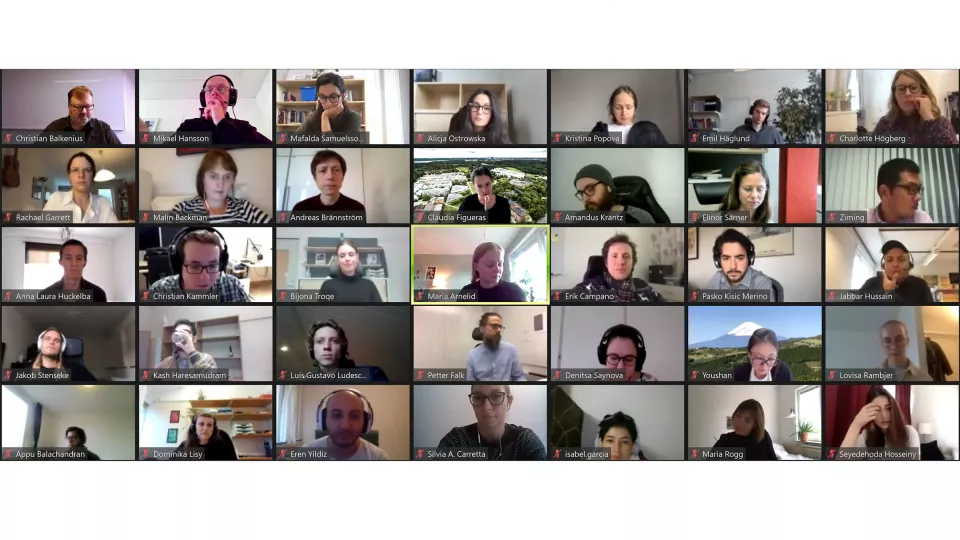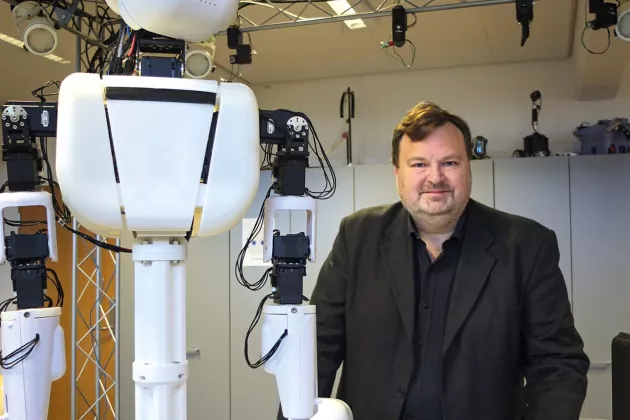“A very good start,” school director Christian Balkenius says.
The meeting was a two-day virtual event with the purpose to introduce the topics and visions of WASP-HS and to get to know each other.
“I think the welcome meeting was a great success. The student group is very excited and positive about WASP-HS and the goal of letting them get to know each other worked really well. This is a very good start,” Christian Balkenius, Graduate school director and professor at Lund’s University, says.
Each of the doctoral students hold a position at a Swedish university as a member of one of the 16 research projects that are run in the WASP-HS program. The graduate school will build a community where the research students can learn from each other and support each other through their PhD studies as well as during their continued careers by means of alumni activities.
The doctoral students from Lund University that participated was Kash Haresamudram (technology and society), Hoda Hosseiny (law), Charlotte Högberg (technology and society), Amandus Krantz (cognitive science), Jakob Stenseke (practical philosophy) and Kasia Söderlund (technology and society).
The WASP-HS graduate school will contribute to the diversity and inclusion of AI related expertise and as such strengthen Sweden’s and Europe’s much needed soft-skills on AI and autonomous systems.
“The next step of the graduate school is the two courses that will be given during this semester that give an introduction to intelligence from a human and an engineering perspective respectively. The goal is to give the PhD students a common ground for their research and future thesis work,” Christian Balkenius says.
The graduate school complements existing PhD programs at Lund University by contributing to a wide interdisciplinary competence in humanities and social sciences and its relation to AI and autonomous systems. A goal is to train future researchers to the highest international standards by providing integrated multidisciplinary training in philosophy, social science, policy research, organisational science, psychology, and other humanities and social science disciplines.



